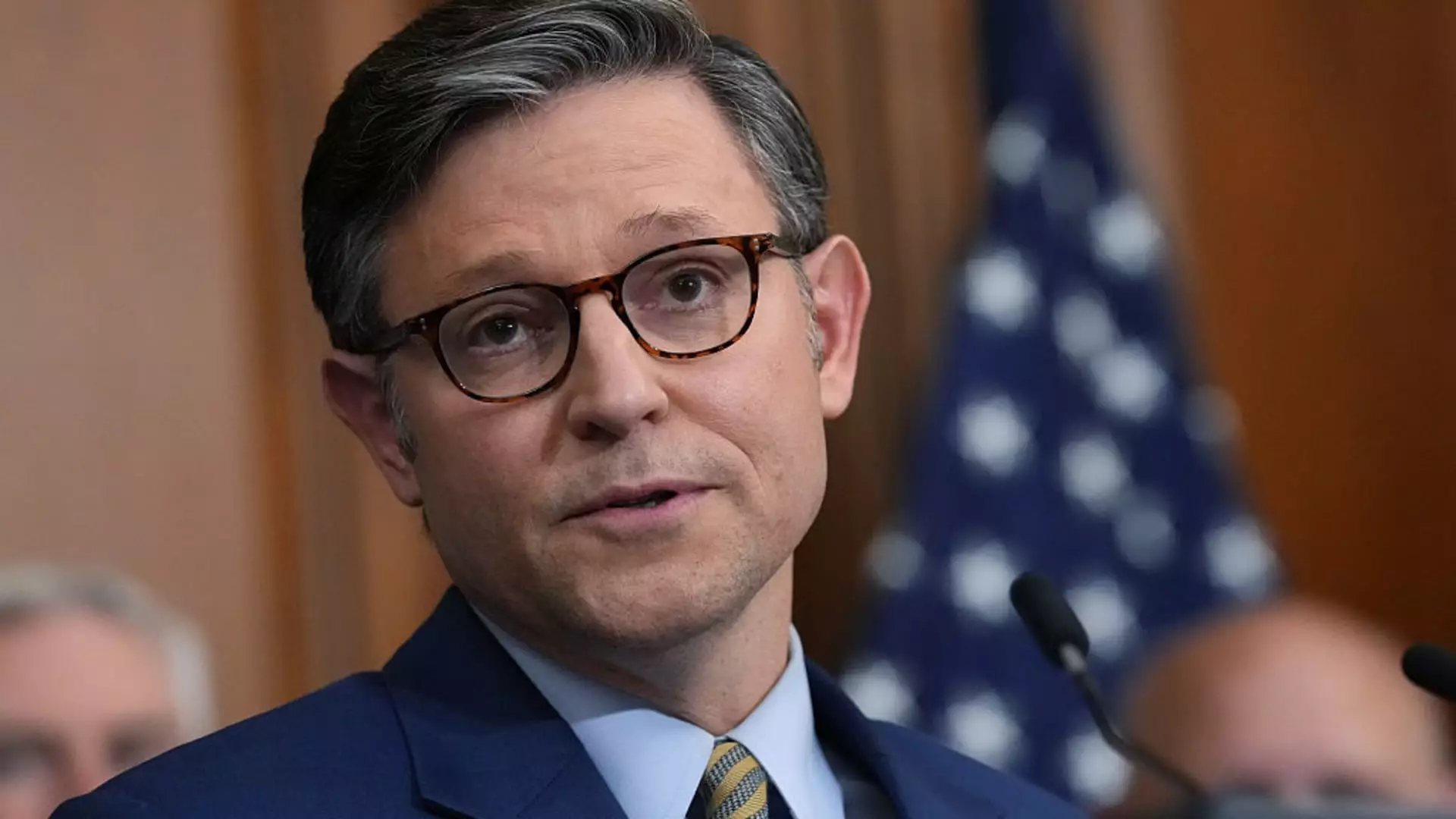In a disturbing display of political maneuvering, House Speaker Mike Johnson’s defense of recent Medicaid cuts lays bare a troubling trajectory for American healthcare policy. Johnson’s assertions during his recent appearance on *Meet the Press*—that only those who choose to lose Medicaid will be affected by the bill—expose an alarming detachment from the lived realities of millions of Americans. The chilling implications of these sweeping changes reveal a stark prioritization of ideology over the welfare of vulnerable populations, raising urgent questions about the moral direction of American governance.
A Misguided Definition of ‘Common Sense’
Johnson frames sweeping changes to Medicaid eligibility as “common sense” work requirements, adding faux rationality to a policy that is, in effect, punitive. Requiring able-bodied recipients to engage in work, job training, or community service for 80 hours a month may seem palatable at first blush; however, it lacks a fundamental understanding of the systemic barriers many face in securing stable employment. To imply that a mere 20 hours of commitment weekly is an easy hurdle reinforces a gross underestimation of the complexities involved in poverty—complexities that often include multiple jobs, precarious housing situations, and inadequate access to childcare or transportation.
Critics are right to call foul on this version of “common sense.” The added paperwork and eligibility checks hardly serve as a gentle nudge toward self-sufficiency; rather, they create bureaucratic labyrinths designed to trip up the most disadvantaged, casting them out of vital health coverage and further entrenching cycles of poverty.
False Narratives Amplifying A Dangerous Agenda
The Republican narrative surrounding these Medicaid cuts—driven by figures like Johnson—presents an oversimplified dichotomy of hardworking citizens versus those who “choose” to take advantage of the system. This caricature unfairly stigmatizes those who rely on programs like Medicaid, painting a picture where assistance is often framed as a luxury rather than a necessity. The true nature of struggle, particularly among marginalized communities, is far more nuanced and often rooted in systemic socioeconomic disparities. Viewing individuals solely through a lens of productivity overlooks the significance of dignity, health, and well-being inherent in human lives.
Moreover, allies within Johnson’s party—such as Senator Josh Hawley—raise valid concerns about the moral implications of cutting health insurance for the working poor. This internal dissent signifies that even within the ranks of the Republican party, there is recognition that the path being charted is politically bleak and ethically bankrupt. It is a roadmap leading not to upliftment, but to hardship for millions.
The Political Fallout
As the backlash builds, with Republicans facing visible dissent from constituents at town halls, it is evident that such heartless policies are out of touch with the electorate’s values. When representatives like Mike Flood and Ashley Hinson are met with boos for supporting a measure that threatens healthcare access for their constituents, it highlights a fundamental misalignment between political agendas and public sentiment. The very real fear among voters—especially those reliant on social safety nets—translates into political capital that cannot be ignored.
Even the D.C. echo chamber proclaims confidence in advancing this drastic legislation toward the Senate, but the reality is stark: with rising dissatisfaction and visible pushback, the risk of backlash will surely resonate beyond the mere walls of Congress. The sentiment that their proposals will “throw poor people away” echoes through chambers of political discourse, with calls for empathy overshadowing the cold calculations of fiscal conservatism.
A Call for Compassionate Governance
What remains true is that healthcare is a human right, not a privilege. The proposed changes signal a chilling shift toward a society that lacks compassion and understanding for those who grapple with socioeconomic hardships. By dismantling Medicaid’s framework in favor of punitive measures, we risk societal decoupling from the very principle of mutual aid—a cornerstone of American democracy.
Empathy cannot be sidelined in the pursuit of financial engineering. The “work or volunteer” requirement is not just a policy change; it is a rejection of humanity in favor of transactional relationships. The real tragedy lies in the message it sends to the struggling populace: that their value and worth are contingent upon their productivity, rather than their intrinsic human dignity. The question remains: will we stand idly by as our government further embraces such an inhumane philosophy, or will we rise in defiance?

